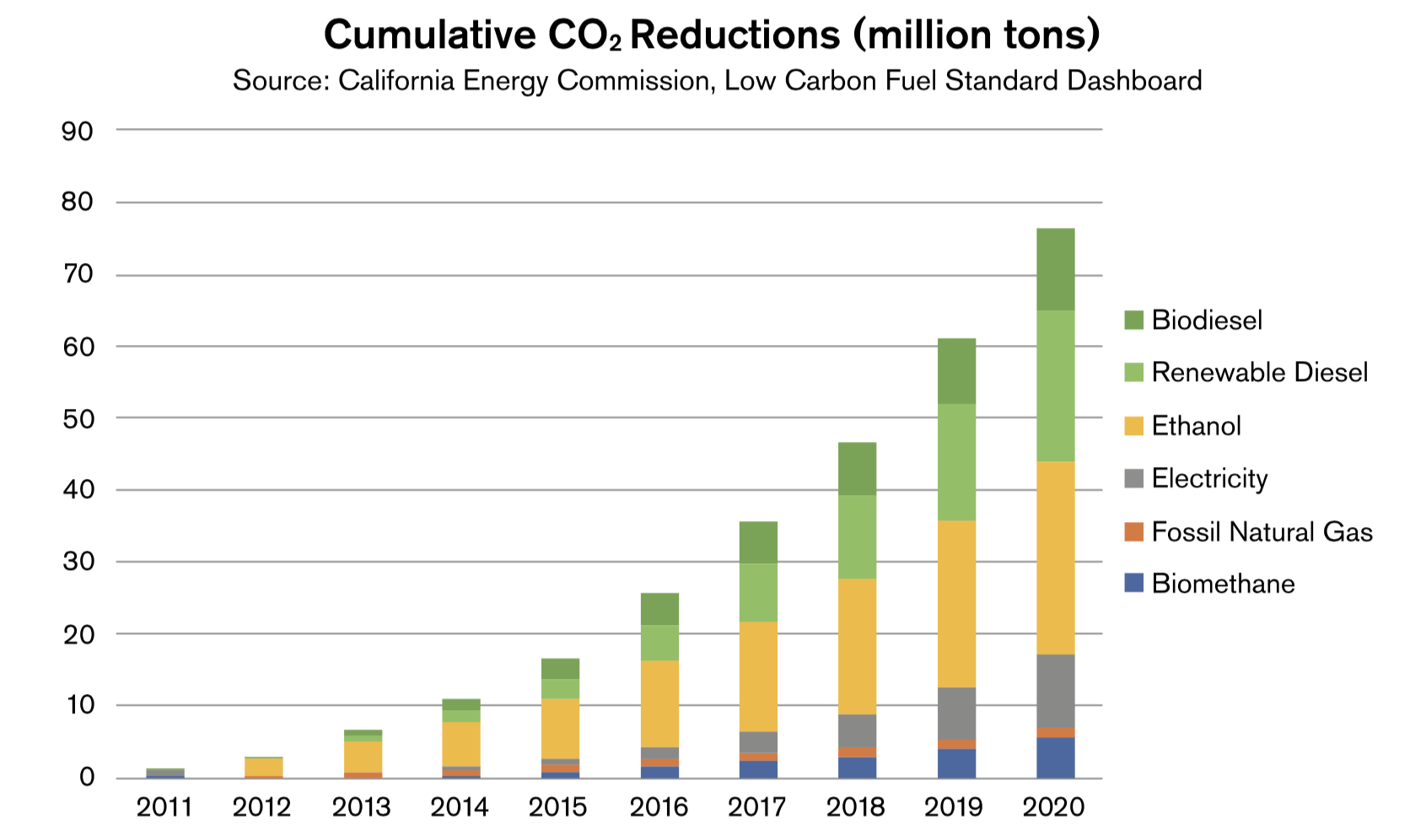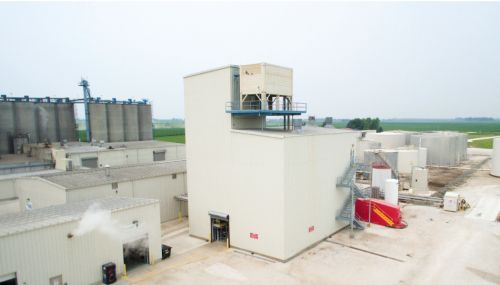All
Going Back to Cali

New data from California’s Low Carbon Fuel Standard confirms the role of biodiesel and renewable diesel in CO2 reductions, outpacing electric vehicles 3:1
Newly-released data from the California Air Resources Board (CARB) shows that low carbon transportation fuels powering internal combustion engines deliver the state’s biggest reduction in transportation-related sources of greenhouse gas (GHG) emissions. Biodiesel and renewable diesel fuel are the biggest carbon cutting technologies from the transportation sector, edging out ethanol and beating the benefits of electrified cars, trucks and buses by 3:1, according to the Diesel Technology Forum.
“When it comes to tackling the climate challenge, these new findings underscore the large and significant role that low carbon biobased diesel fuels are playing in California today and should also inform current and future climate and transportation policy considerations at the national and regional levels outside of California. Cumulatively, over the period of 2011-2020, California’s consumption of biodiesel and renewable diesel fuels accounted for 43 percent (over 32 million tons) of all greenhouse gas eliminated from the transportation sector, while battery-electric transportation options accounted for only 13 percent (10 million tons),” said Allen Schaeffer, executive director of the Diesel Technology Forum, a not-for profit association that represents leaders in diesel engines, equipment and fuels.
“Meeting the climate challenge will require many solutions. While the promise of zero-emissions technologies is growing, internal combustion engines using biobased diesel fuels have been delivering significant carbon reductions across broad sectors of the economy. The greatest benefits are occurring from the use of these biobased diesel fuels in heavy-duty vehicles, Class 8 trucks, that represent 60 percent of all emissions generated by the fleet of commercial vehicles. With other West Coast states recently adopting low carbon transportation policies, we expect a green corridor from California through British Columbia and biobased diesel fuels will generate impressive climate benefits as they have in California.
“The use of ready-to-go biobased diesel fuel is a proven and cost-effective way to reduce greenhouse gas emissions now, without acquiring new vehicles or waiting for new supporting fuel infrastructure that may still take many years to reach market availability. All diesel engines, old and new, can operate on blends of biodiesel or 100 percent renewable diesel fuel. These are fuels that are capable of reducing greenhouse gas emissions by at least 50 percent and in the case of renewable diesel fuel, emissions may be reduced by upwards of 80 percent, according to research commissioned by the South Coast Air Quality Management District and the Bay Area Air Quality Management District. With a fleet of more than 1 million diesel commercial vehicles on the road in California, there is even greater opportunity for additional short term climate benefits with the uptake of biobased diesel fuel.”

Availability of low carbon biobased diesel fuel is expanding. CARB estimates that biobased diesel fuel has grown from about 16 million gallons in 2011 to nearly 1 billion gallons in 2020. Renewable diesel fuel is one the fastest growing low carbon transportation fuels sold in the state. Interest in renewable diesel fuel as a clean, low cost and low carbon fuel option is attracting the attention of traditional fuel producers like Marathon and Phillips 66 that announced investments to retool petroleum refineries to produce renewable diesel fuel. Energy analysts estimate that announced capacity from these announcements would equate to nearly 3 billion gallons of the fuel produced annually, or about as much petroleum diesel fuel consumed in California in 2019.
These are fuels derived from waste feedstocks, including vegetable oils and animal fats to yield very low carbon transportation fuels. After processing vegetables and animals for food, the waste stream that would ordinarily find its way into a landfill is processed into clean low carbon fuels. Fleets do not need to invest in new engines, trucks or equipment or invest in an expensive network of fueling or charging infrastructure. Biobased diesel fuels may be used in the existing fueling infrastructure, and in addition, 100 percent renewable diesel is also pipeline compatible.
“Relative to other strategies, today the switch to biobased diesel fuel is a cost-effective solution that allows municipal and private fleets to generate big climate benefits at least cost by using existing assets like fueling infrastructure and diesel engines,” said Schaeffer.
Note: This article was originally published by the Diesel Technology Forum (dieselforum.org) under the headline, “Bulk of Greenhouse Gas Reductions from Transport Sector in California Delivered by Renewable Diesel, Biodiesel.” It has been reprinted here with their express permission.
Related Posts
 Why Quality Matters in Your Biofuel Blends
Why Quality Matters in Your Biofuel Blends
Posted on June 25, 2025
 Incorporating Higher Blends of Biofuels
Incorporating Higher Blends of Biofuels
Posted on May 14, 2025
 NORA Programs at Eastern Energy Expo
NORA Programs at Eastern Energy Expo
Posted on May 13, 2025
 March Short-Term Energy Outlook
March Short-Term Energy Outlook
Posted on April 28, 2025
Enter your email to receive important news and article updates.
